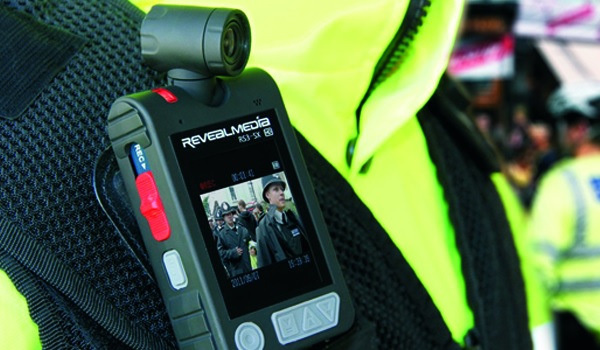The UK and US lead adoption of BWV cameras
Research shows police forces globally are accelerating the use of body-worn video (BWV) cameras, with more than one million expected to be in use by 2021.
Research shows police forces globally are accelerating the use of body-worn video (BWV) cameras, with more than one million expected to be in use by 2021.
And the report by market researcher Beecham Research highlights new applications of BWV cameras, including use by prison officers, border control staff, private security companies, parking officers and airport security personnel.
Hampshire Fire and Rescue Service, for example, is the first in the UK to issue body-worn cameras to its officers, primarily to enable users to evaluate their own performance and decisions to see if improvements could be made.
The report says the main motivations for adopting BWV cameras in policing are to provide accountability, a reliable source of evidence, protection for police officers from false accusations and to increase trust between police and the public.
North America remains the leading region in terms of units deployed, while the UK heads up Western Europe.
This is an event-push technology driven by a range of political, cultural, social and regulatory factors, said Saverio Romeo, principal analyst from Beecham Research and one of the authors of the report.
The growth in the US is born out of particular events, while in the UK the use of body-worn cameras reflects an increasing acceptance of surveillance technologies as tools for public safety. In Russia, it is also about fighting corruption.
The Beecham Research report highlights several key challenges for the adoption of body worn cameras in police forces, from privacy and ethical concerns, legislation, security and cost. A complete solution involves cameras, storage and management software.
Storing data generated by body-worn cameras is much more expensive than the cameras themselves and many organisations are turning to cloud-based solutions, said Mr Romeo.
He added that BWV camera images also need to be encrypted to avoid content being retrieved without authorisation, while battery longevity is essential to ensure the camera works for the full length of a shift.
The adoption of BWV cameras for non-police professions is still nascent, explained said Mr Romeo, adding: The experience of using body-worn cameras in police departments will benefit those applications beyond police, but the growth of these applications can also be encouraged through innovation at device level, along with other smart connected components, data storage solutions and analytics.
www.beechamresearch.com




